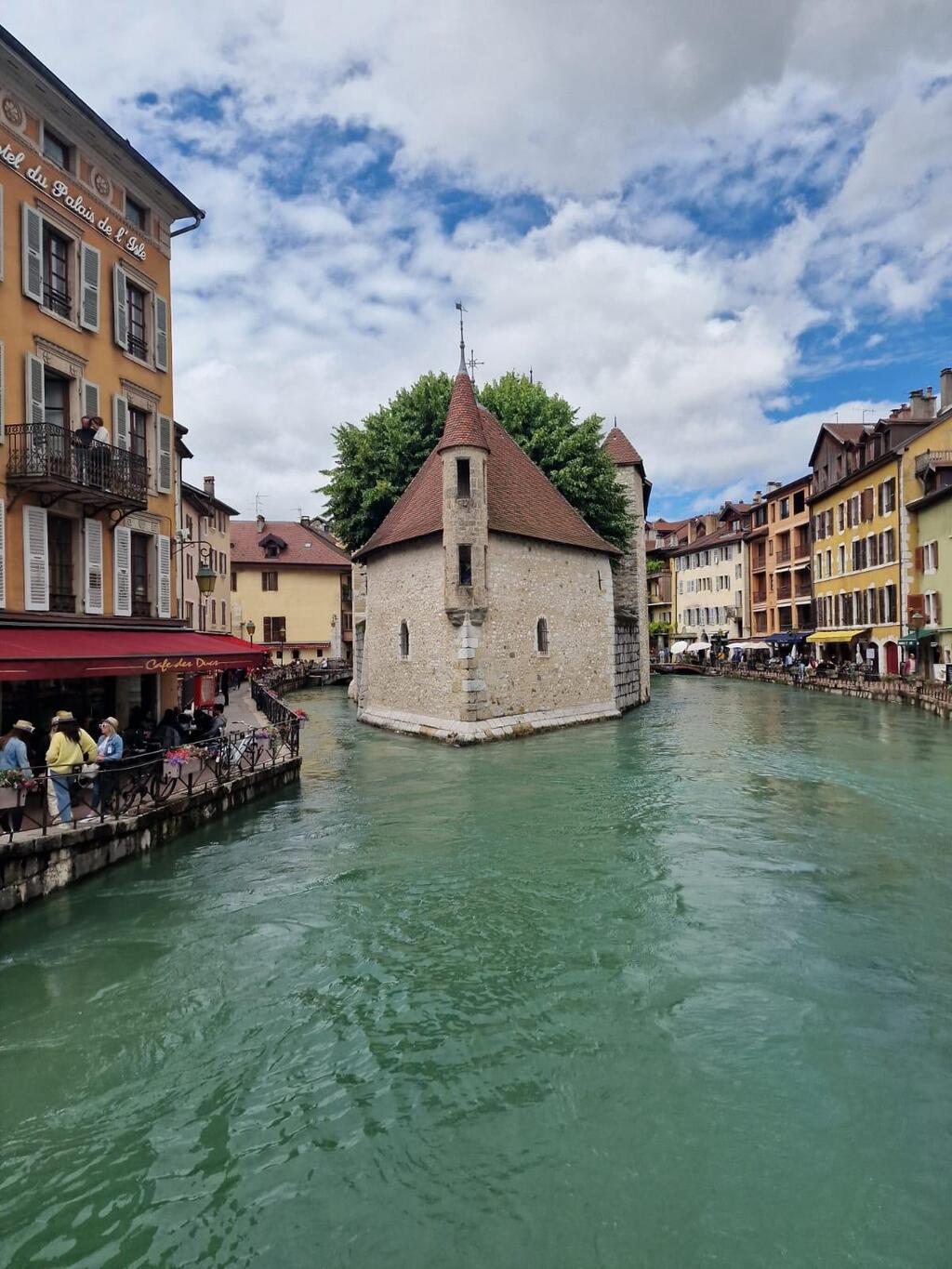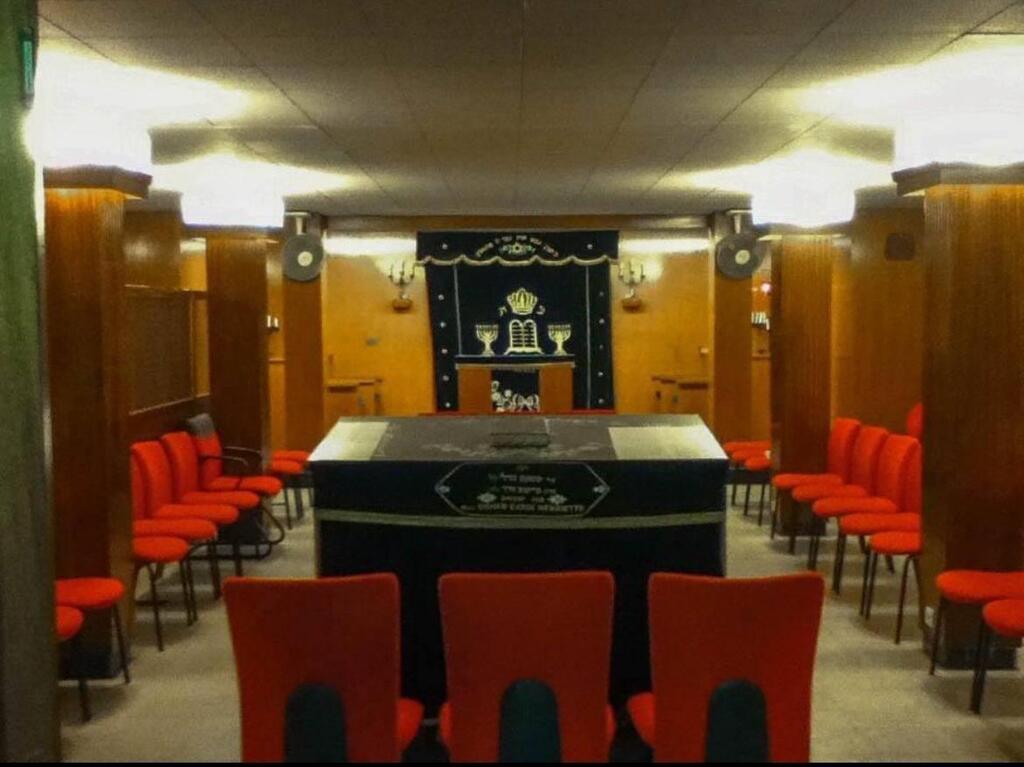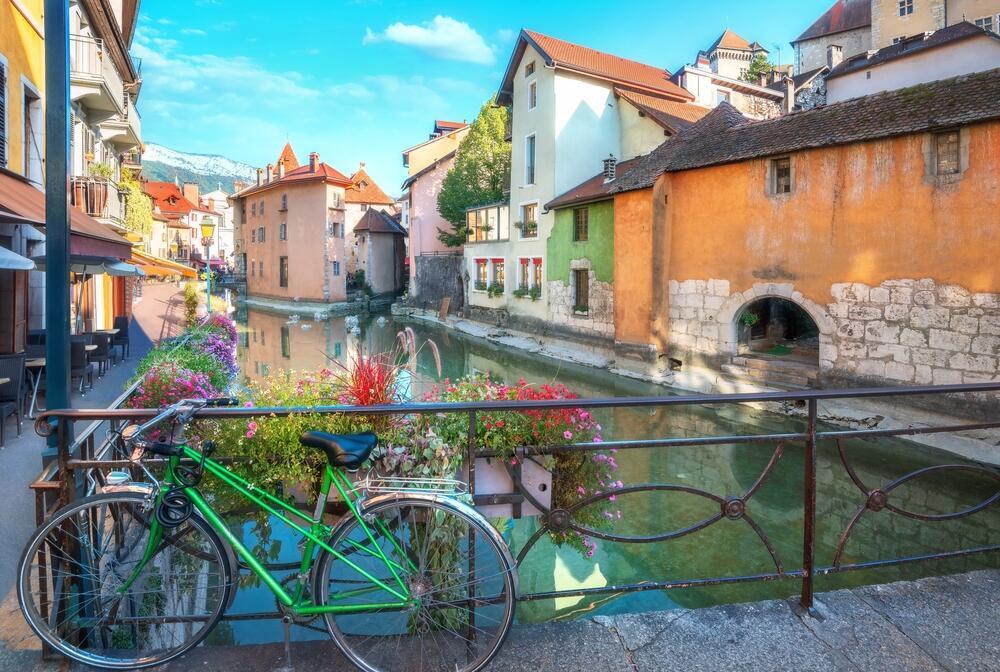Getting your Trinity Audio player ready...
Welcome to Annecy, France. Nestled on the shores of Lake Annecy, this stunning town in Haute-Savoie in southeastern France is often dubbed the "Venice of the Alps" due to the Thiou River that winds through it, splitting into two picturesque canals.
Jewish history in Annecy stretches back to the Middle Ages, with Jews initially living on the right bank of the Thiou River, outside the fortified town walls. Rue des Juifs, or "Street of the Jews," later transformed into Quai de l'Evêché.
During the Black Death, Jews were tragically scapegoated and imprisoned. However, the French Revolution eventually welcomed Jews back to France, and the Jewish community grew, especially after the 1870 Franco-Prussian War.
Nowadays, Rabbi Naftaly Suissa is the standard bearer of Annecy's Jewish community. Initially planning a brief five-year stay, Rabbi Suissa ended up staying for over 45 years.
My journey to Annecy was sparked by a business trip to nearby Geneva. Combining work with pleasure, I decided to explore this charming town over the weekend and interview Rabbi Suissa for my doctoral research on small Jewish communities worldwide. Annecy's Jewish community, consisting of just about 50 families, certainly fits this description.
Seeking information on kosher meals for Shabbat, I reached out to the community. Rabbi Suissa's son informed me that while there were no organized Shabbat meals, they would be delighted to host us in their home.
We arranged to meet at the synagogue and then walk to the rabbi's house together. Upon arrival, we noticed a slightly ajar door and a police car stationed at the entrance, keeping a watchful eye on those coming and going.
Inside, the synagogue barely had a minyan (quorum of ten men) and only four women in the women's section—none of whom were locals. Rabbi Suissa later explained that while the synagogue once bustled with daily activity, it now only opens on Shabbat and holidays due to the difficulty in gathering a minyan.
Following the service, we began our walk to the rabbi's house, but not before Rabbi Suissa crossed the street to thank the police officer guarding them during prayer. The officer respectfully stepped out of the car and smiled warmly at the rabbi.
The 13-minute walk to the rabbi's house took place under a light summer rain. Along the way, we noticed a strong Muslim presence, with Arabic spoken and Arabic songs playing at every corner.
Curious about their safety, I asked the rabbi's son if they felt uneasy walking the streets, especially after the events of October 7. He admitted antisemitism in France is indeed troubling, much like in other parts of the world. Yet, despite the fear, they continue with their daily lives. Upon reaching their modest home, Rabbi Suissa and his family welcomed us with open arms.
Without a Jewish school in Annecy, families send their children to local public schools, later enrolling them in a Jewish school in the nearby town of Aix-les-Bains for high school. The synagogue compound also houses a mikveh, available exclusively for women.
Rabbi Suissa, a skilled shochet (ritualistic slaughter), provides kosher meat for Jewish communities in Switzerland and Grenoble, France. Local Jews purchase kosher meat from Grenoble, as do Rabbi Suissa's family. With no kosher store in Annecy, they buy kosher food in nearby towns.
Annecy lacks even a single kosher restaurant. When I asked the rabbi's daughter if this was an inconvenience, she charmingly replied they don't need restaurants because home-cooked meals are tastier. "It's healthier, we share experiences, create memories and above all, maintain togetherness," she replied.
- Ayelet Mamo Shay is a businesswoman, chairwoman of the Gibraltar-Israel Chamber of Commerce, a journalist, international speaker and the author of the popular book Relocation Darling Relocation!




